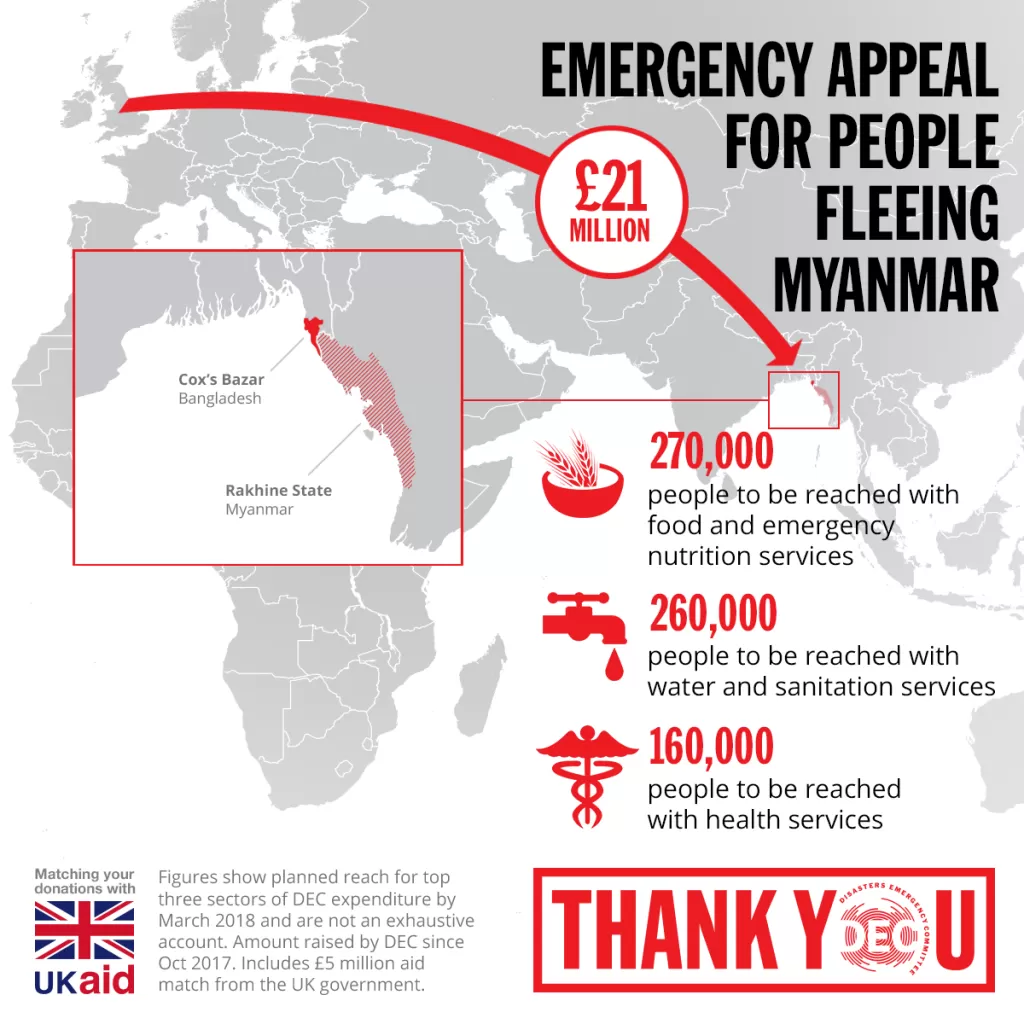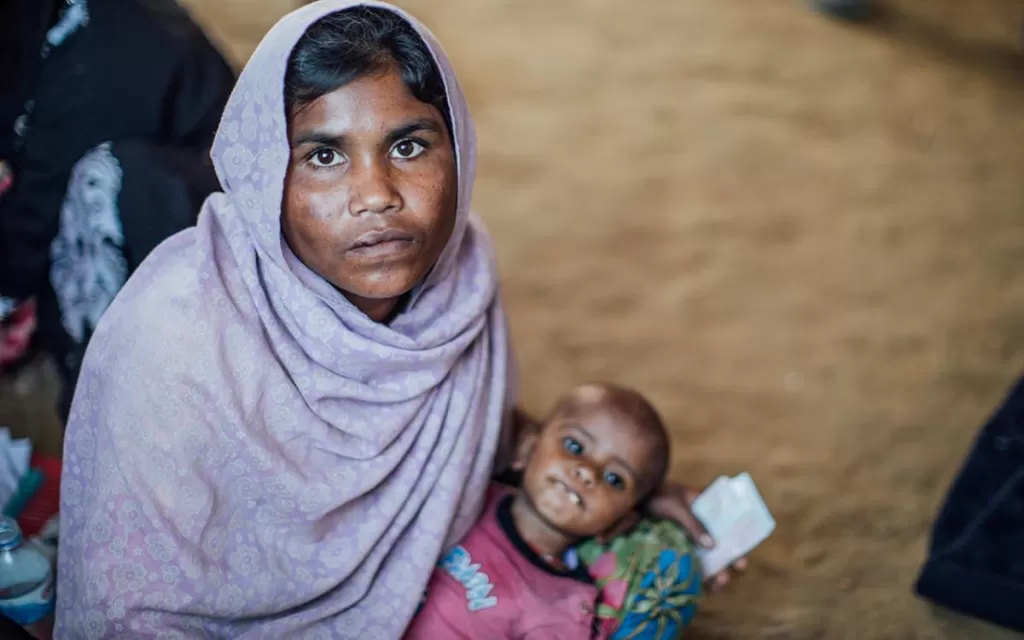
How your donations are creating a safe place for Rohingya refugees
The DEC’s Director of Communications, Nicola Peckett, visited Bangladesh in November to find out how DEC funds are helping people who fled Myanmar with nothing.
By
Nicola Peckett, Director of Communications
The DEC’s Director of Communications, Nicola Peckett, visited Bangladesh in November to find out how DEC funds are helping people who fled Myanmar with nothing.
30 November 2017
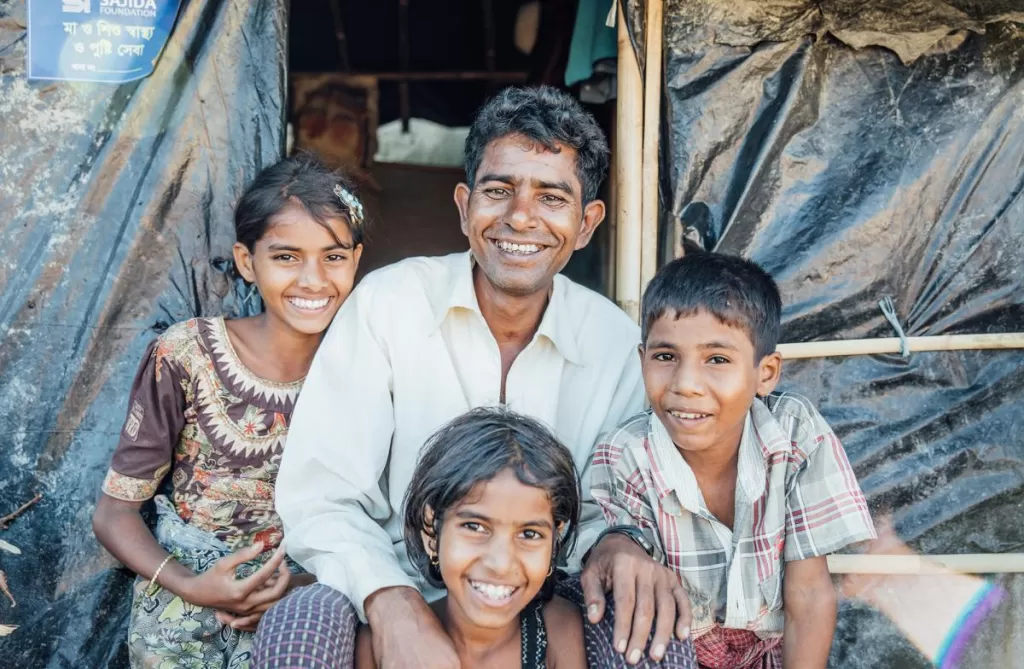
Sayed fled Myanmar with his three young children. Sayed and his family received household supplies and now have access to safe water thanks to DEC funded projects. IMage: Paddy Dowling/DEC
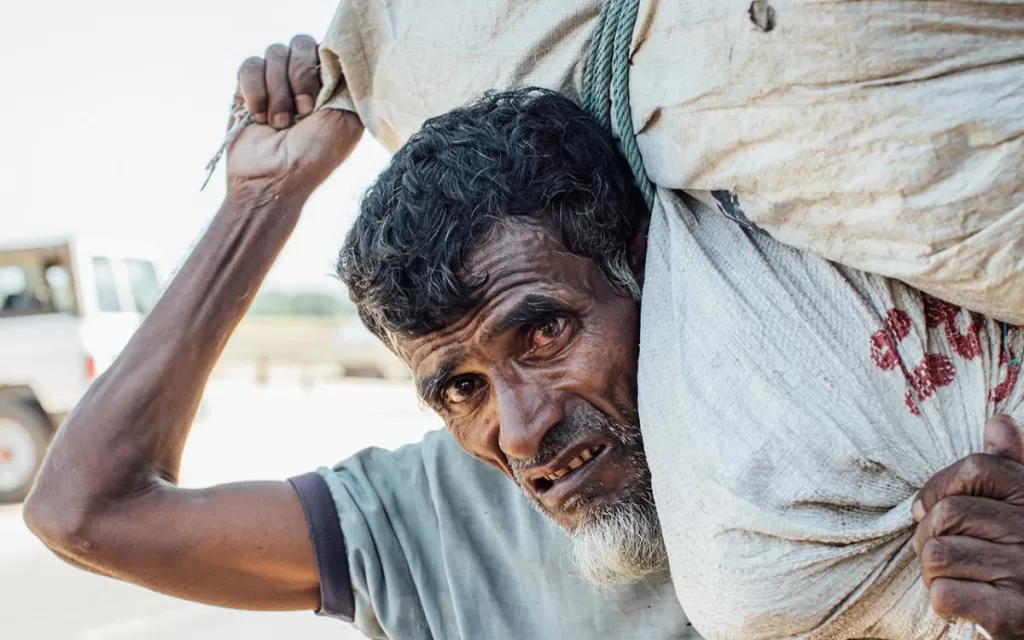
Abdur Rahim arrives at the border between Myanmar and Bangladesh. He has been carrying his possessions for a month and has arrvied with his wife, children and grandchildren. Image: Paddy Dowling/DEC
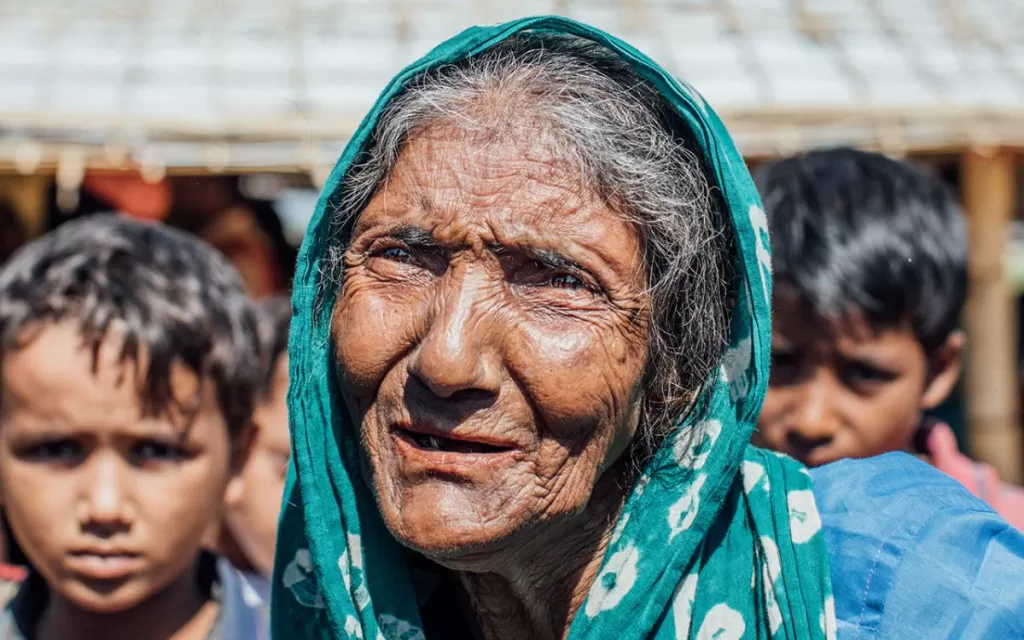
Ajmin Arja, 70, near the border with Myanmar. She has arrived on her own after becoming separated from her family. Image: Paddy Dowling/DEC
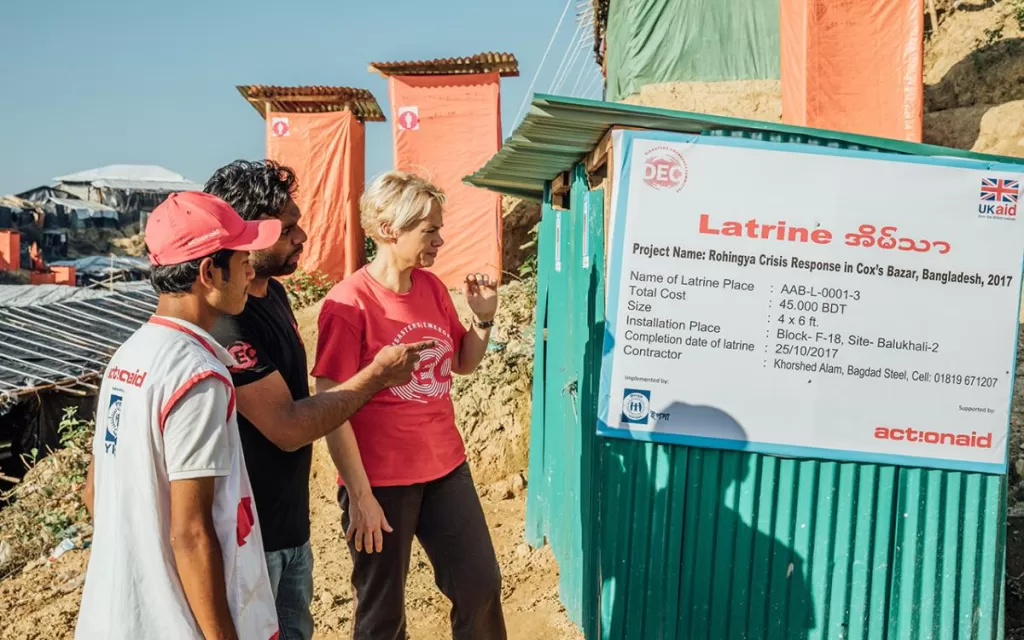
DEC Director of Communications Nicola Peckett and Fundraising Director Adil Husseini inspect a latrine installed by ActionAid in the refugee camps near Cox's Bazar. Image: Paddy Dowling/DEC
